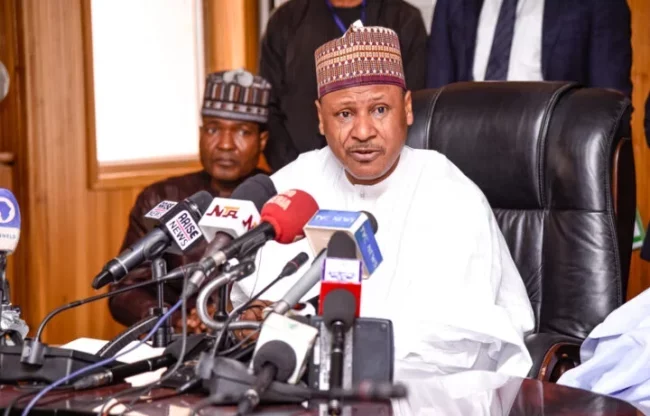The President Bola Tinubu administration has, in one year, laid a solid foundation for sustained growth and development, towards guaranteeing a brighter future for Nigerians, Minister of Information and National Orientation, Mohammed Idris, has said.
Contained in a statement to mark the first anniversary of the Tinubu administration, the minister said the government has taken bold economic reforms which have stabilized the economy and sparked growth.
According to Idris, the Tinubu government has recorded giant strides in healthcare, education, infrastructure, and security.
He noted that a significant move was the removal of the unsustainable fuel subsidy, thereby redirecting approximately $10 billion annually towards critical sectors.
This, he said, has led to a 50 percent reduction in petrol importation and increased state and local government revenues.
“The elimination of the foreign exchange subsidy and the harmonization of FOREX rates bolstered the Nigerian economy, resulting in the Nigerian Stock Exchange becoming the top-performing bourse globally and strengthening the Naira,” he added.
He listed strides of the present government to include the attraction of over $30 billion in investments in one year, thereby enhancing Nigeria’s global economic partnerships.
ALSO READ: VIDEO: Nigerians assessment of Tinubu’s one year in power
Pinpointing security as a sector that has received major attention of the government, he said its efforts have been in the liberation of over 4,600 hostages, neutralization of 9,300 criminals, and arrest of 7,000 terrorists and bandits.
He added that security forces have also recovered thousands of weapons and rounds of ammunition, crucial in combating banditry and insurgency.
In addressing food security, he said the Tinubu administration had done restructuring of the Ministry of Agriculture into the Ministry of Agriculture and Food Security apart from initiatives such as the National Agricultural Development Fund and the Dry Season Farming Initiative to bolster agricultural productivity and ensure food sufficiency.
“Energy and natural resources management have seen enhanced security measures in the Niger Delta, leading to an increase in oil production and more stable natural gas output,” Idris added.
He said efforts in infrastructure include significant investments in transportation networks including the activation of new rail lines and the initiation of the Lagos-Calabar Super Highway, and the inauguration of the Engineering Design of the Sokoto-Badagry Highway.
Idris added that healthcare and education had received substantial boosts, including the expansion of primary health centres, the introduction of the Student Loans (Access to Higher Education) Act.
“To ease the impact of these economic measures, the administration launched several interventions, including a wage award of N35,000 monthly for civil servants, the establishment of a tripartite committee for wage restructuring, and the creation of an Infrastructure Support Fund for states.
“As we move forward, the Tinubu administration remains committed to its vision of a resilient, inclusive, and prosperous Nigeria, underpinned by strategic investments, youth empowerment, and improved governance,” Idris added.
NIGERIAN TRIBUNE
